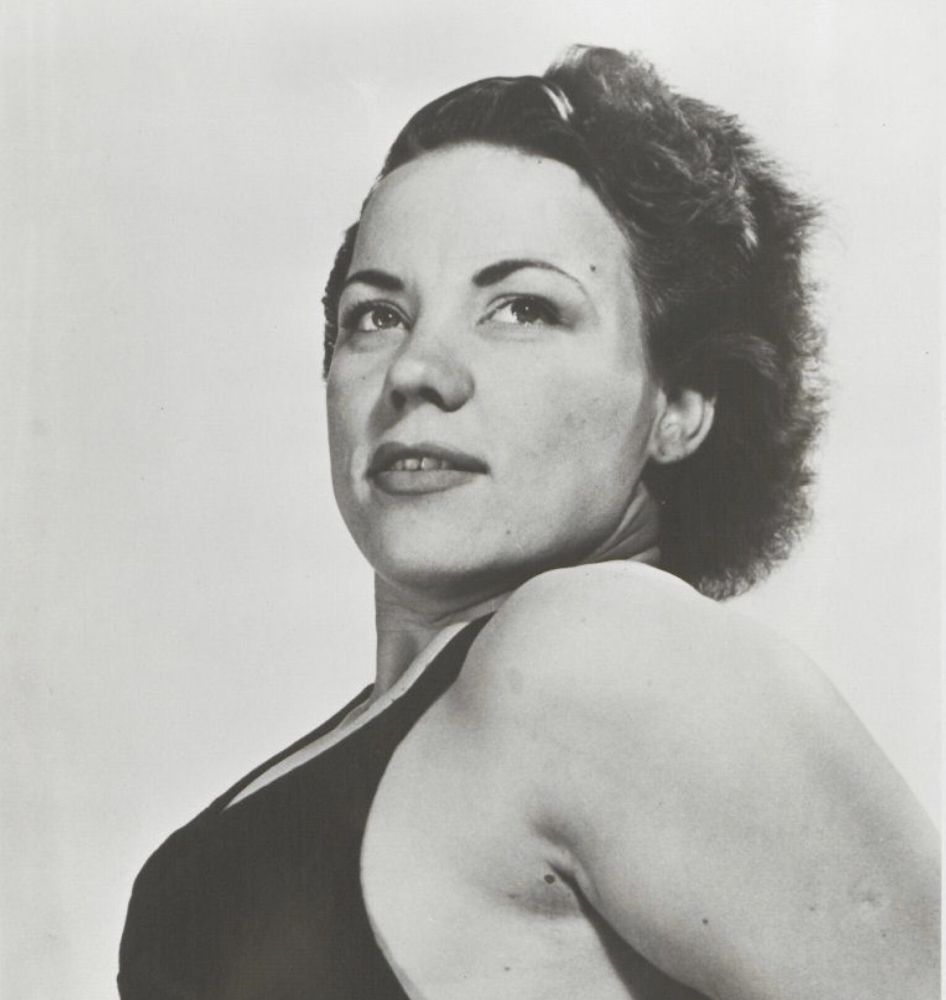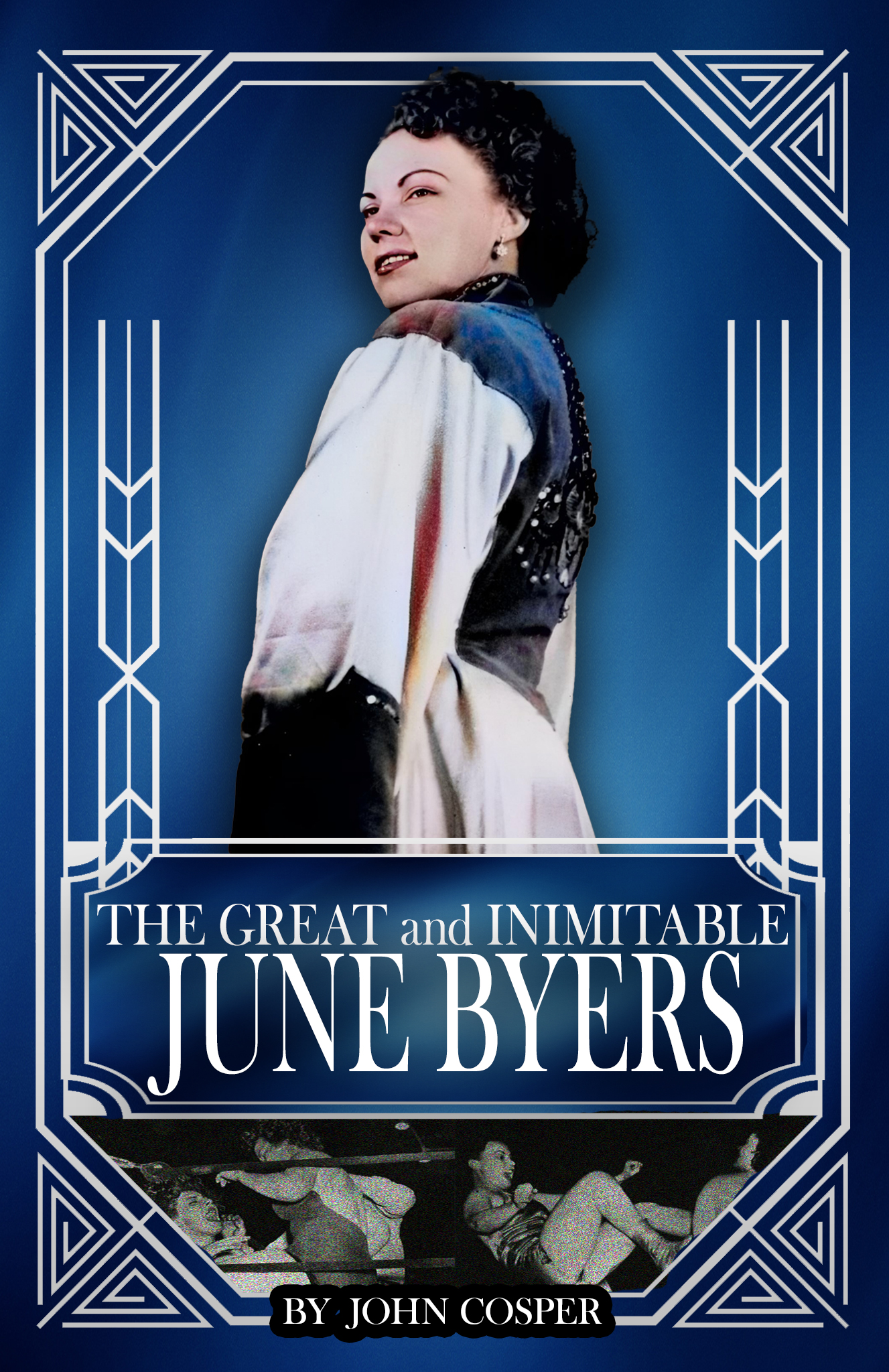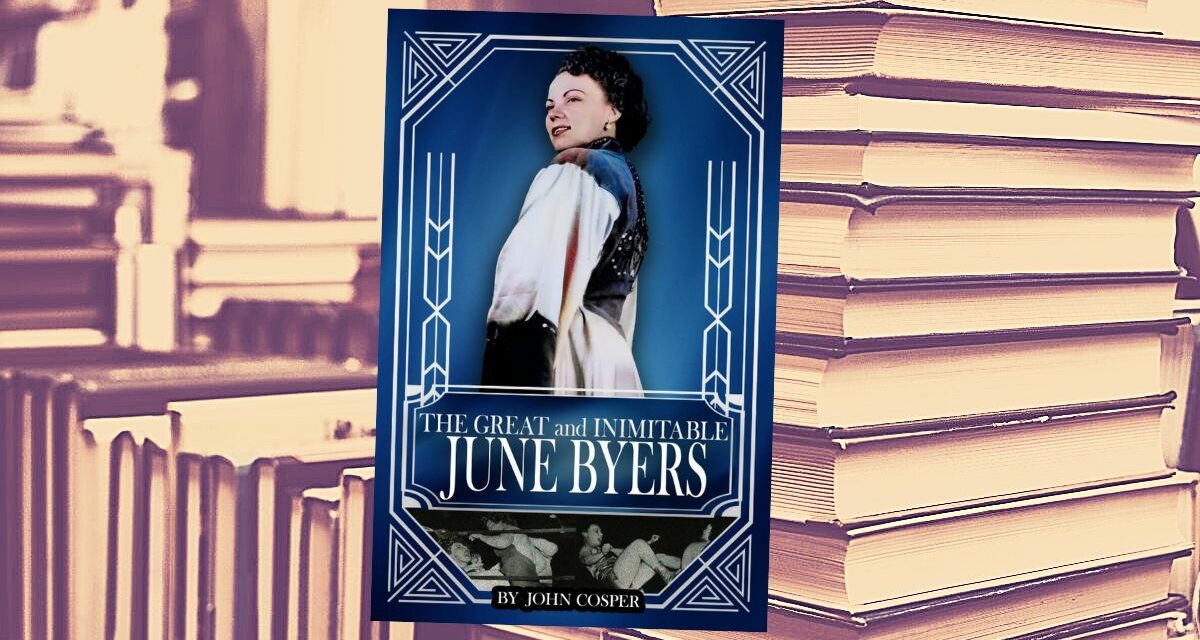EDITOR’S NOTE: SlamWrestling.net contributor John Cosper has a new book out. It’s called The Great and Inimitable June Byers and features a foreword by former NWA Women’s champion Kamille (Kailey Farmer). We are pleased to be able to offer an excerpt for our readers.
THE MONTREAL COVER-UP
Few cities have had as rich a history and as much controversy as Montreal, Quebec when it comes to pro wrestling. The city that gave the world Yvon Robert, Brute Bernard, Jos LeDuc, Pat Patterson, Jacques Rougeau, the Vachon family, Kevin Owens, Sami Zayn, Maryse Ouelet, Crazzy Steve, and LuFisto also gave us the 1997 Montreal Screwjob, where Vince McMahon ordered referee Earl Hebner to ring the bell and award the WWF World Heavyweight Championship to Shawn Michaels, even though the champ, Canadian icon Bret Hart, had not tapped out.
Wrestling history buffs and members of the Cult of (Jim) Cornette know well that the first Montreal Screwjob, originally known as the Battle of the Bite, took place back on May 4, 1931. Champion Ed “Strangler” Lewis was the victim this time. As planned, Strangler dropped the first pin fall, expecting to win the second and third, but during the second, DeGlane started screaming, claiming the champ had bitten his arm. The bite marks were real but had been created during the intermission by DeGlane or one of his compatriots in the locker room and concealed until the action resumed. The referee awarded the second fall to DeGlane in a scheme orchestrated by Strangler’s business rival, Boston promoter Paul Bowser.
In 1948 June Byers and Rose Evans made some controversial history of their own just outside Montreal. The dust up began when a singles match between the two ladies was announced for a July 26 show at Verdun Auditorium, located in the borough of Verdun. Adrien Valiquette began promoting in the mid-1930s, and except for a brief time during World War II, had run shows in the town ever since. It would be the first ever presentation of women’s wrestling in the city, and the fans were ecstatic.

A June Byers promo shot
The local government was not. Neither were the local churches. Women’s wrestling was forbidden in the city of Montreal, but the law, as written, did not include Verdun. As soon as news broke about the women’s wrestling match, civic and church leaders voiced their opposition. The idea of women wrestling was obscene and vulgar to many, especially given the semi-revealing costumes the ladies wore.
Alas there was nothing legally the forces that conspired against Byers and Evans could do. Women’s wrestling was illegal in many places at the time, most notably in the State of New York. But the athletic commission that dictated the rules in Montreal had no jurisdiction over Verdun.
Unable to stop the match, Verdun Police Director Pierre Gatineau forced one change on the proceedings. He couldn’t stop the match, but he ordered the two women to wear slacks and sweatshirts over their ring attire.
June Byers and Rose Evans clearly didn’t care that they had detractors in the Montreal community. The English language edition of The Gazette from Montreal describes a scene as wild and outrageous as any match either woman ever put on. They were not about to pack it in, nor would they tame their actions in the ring. The ladies made their traditional entrances in their robes: June dressed in gold, Rose in blue. They disrobed, revealing the slacks and sweatshirts required by Director Gatineau. As a sold our crowd of 5500 looked on, the ladies waited patiently for referee Alex Paquette to ring the bell.
And then, the girls did what they did best.
Rose Evans began by yanking June around by the hair, gouging her eyes, and punching her right in the solar plexus.
Referee Paquette cried out, “Enough!”
Rose responded with a word of her own: “Scram!” And punched Paquette in the neck.
For nine minutes and fifty seconds, Rose Evans established herself as the heavy, brutalizing June from one side of the ring to the other.
“Good heavens!” cried a man in the front row, taken aback by the brutality.
Reluctantly, Paquette counted three as Rose Evans pinned June Byers. Fans booed as Paquette raised Rose’s hand in victory, and the ladies retired to the locker rooms for a short break.
June freshened up her appearance before returning to the ring. Almost immediately, Evans put June flat on her back, but a tug at Rose’s hair swung the momentum. The crowd cheered, and Referee Paquette struggled to hide his satisfaction as Byers hoisted Evans up, draped her over the ropes, and delivered a spanking.
Evans called Byers a “witch.” At least, that’s the word published in The Gazette. Paquette warned Evans about her language. Evans pulled Byers back to the mat by the arm, but Byers managed a reversal, allowing Paquette to count three and even the contest at one fall a piece.
The crowd was on their feet for the third and final fall. Rose Evans pulled out all the stops in the third, gouging June’s eye and wrapping her neck in the ropes.
“Please, ladies, please!” Referee Paquette pleaded.
“Go hem-stitch a hanky!” Rose screamed.
June refused to quit. Calling on “everything she had ever learned about steer stumping in Texas,” she threw Rose Evans to the mat, where she stayed long enough for the final three count.
“It was a perfect night for wrestling,” Ron Marsh of The Gazette proclaimed. “Not only did the fragrance of peanuts and perspiration permeate the premises, but just inside the lobby a young man was cooking popcorn. Sometimes the crunching of the spectators was louder than the crunching of Miss Byers and Miss Evans. All the scene needed was Nero, lolling in a ringside seat, plucking his violin.”
Mr. Marsh’s recap appeared on page eleven beneath a photo that captured the moment when June spanked Rose while draped over the ropes. One can only imagine how thrilled local leaders and clergy were seeing Rose’s derrière prominently featured in their morning paper.
“It was the first women’s match in the province of Quebec,” confirms Pat Laprade, who co-authored the outstanding book Mad Dogs, Midgets and Screw Jobs: The Untold Story of how Montreal Shaped the World of Wrestling with Bertrand Hébert. “Verdun was a separate town than Montreal, so the rules of the Athletic Commission didn’t apply there. That’s why in the 1970s Vivian Vachon was able to work in Verdun for Grand Prix but not at the Montreal Forum.”
It would be thirty-seven years before a women’s match actually took place in the city of Montreal in 1985.
Fifty three years after the Byers-Evans bout, in neighboring Ontario, a Montreal native named Genevieve Goulet, better known to indie fans everywhere as LuFisto, fought for the right not merely to wrestle, but to wrestle men in intergender contests. LuFisto had struggled her entire career to earn not just acceptance but respect in a business largely dominated by men. Like June Byers and Rose Evans before her, she broke ground and blazed a trail for herself and future generations.

RELATED LINKS
- Review: June Byers bio a ‘robust history of her life and career’
- Buy The Great and Inimitable June Byers at www.eatsleepwrestle.com, Amazon.com or Amazon.ca
- SlamWrestling Master Book List


